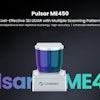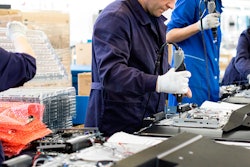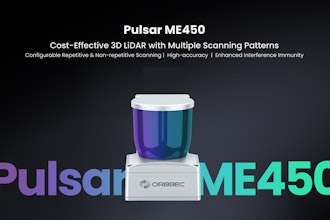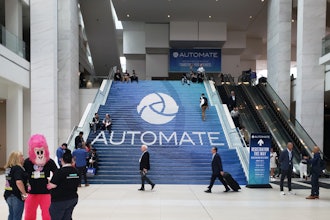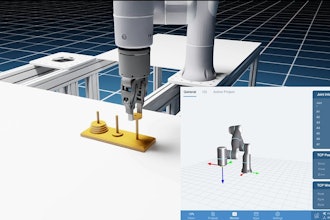
 Kris Goldhair
Kris GoldhairThere’s a new business model in town, and it’s changing the contours of the sales landscape. Whereas companies used to subscribe to a B2B (business-to-business) or B2C (business-to-consumer) model, the recent desire to innovate at a competitive pace has inspired many companies to try a B2B2C approach.
Kris Goldhair, strategic account director at KBMax, explains why more manufacturers are looking to technologies like configure, price, quote (CPQ) to help sales teams reduce their close times, automate processes and efficiently respond to the call for mass customization in a B2B2C era.
Manufacturing.net: How are changing consumer preferences influencing the sales landscape?
Kris Goldhair: In recent years, there has been an increased demand for mass customization amongst both businesses and consumers. They have assigned greater value to custom goods as opposed to something that’s mass-produced. At the same time, enterprise buyers are looking for an experience that mirrors what they get when they shop for a product on Amazon, but few businesses are able to provide that. They want a tech-driven process that allows them to quickly design or customize the required product, see the price upfront and order in a short series of clicks. This landscape for the consumerization of business purchasing—increasingly being referred to as B2B2C—places more pressure on sales teams, who want to accommodate buyer preferences, but aren’t always privy to what that takes on the production side. At the same time, delivering highly customized products can add to the time that salespeople spend on quoting. Outdated processes tend to be very manual with a lot of back and forth with the engineering team to confirm a customized product can actually be manufactured—so it could take weeks to deliver a quote, which prolongs the sales cycle.
Additionally, today’s customers prefer to “cut out the middleman” with tech-enabled support. If companies hope to navigate the B2B2C movement effectively, they’ll need to explore ways to sell their products directly on their website. They’ll also need to explore solutions that streamline sales, engineering and manufacturing so that all departments are connected during the sales process to deliver these “made-to-order” goods quickly and profitably.
Manufacturing.net: What challenges are involved with adopting a B2B2C sales model in the manufacturing industry?
Kris Goldhair: Some manufacturing companies might find it difficult to enable purchasers to have a consumer-like shopping experience in a way that doesn’t increase production costs. This is due to challenges around ensuring complex, customizable products are designed in a way that can actually be manufactured, and are priced accurately. This impacts sales teams, who want to fulfill customers’ wishes but just don’t necessarily have visibility into what it takes to deliver on those things. That lack of visibility speaks to the siloed operations that are common amongst manufacturing companies. Workflows at many companies tend to look the same as they did 20 to 30 years ago—so, it will take a mindset transformation in order to open up communication between sales, engineering and manufacturing. As a traditional industry, manufacturers will have to overcome some fundamental obstacles in order to realize the mass customization abilities that are key to the B2B2C experience.
Manufacturing.net: Why are more manufacturers looking to technologies like CPQ to help boost sales?
Kris Goldhair: More manufacturers are recognizing that the key to selling more at a faster rate is to embrace the wave of automation that the Fourth Industrial Revolution brings. They realize that they need to automate with solutions like CPQ (configure, price, quote) and product visualization if they hope to remain competitive. Such solutions sync every arm of the manufacturing process while allowing customers to personalize an item to their liking, view a real-time estimate based on each feature and receive a quote in minutes. The sooner manufacturers understand that every department works hand-in-hand to deliver a true B2B2C experience, the sooner they can begin to optimize. With the right partner, solutions like CPQ and product visualization can deliver that highly-visual, personalized experience that consumers desire without requiring a full-on IT overhaul. The right CPQ solution will seamlessly plug into a manufacturer’s website to deliver an optimized buying experience for their customers and integrate with other platforms like Salesforce to help salespeople with lead tracking and engagement.
Manufacturing.net: Can you describe how it is possible to automate processes and reduce silos across sales, engineering and manufacturing?
Kris Goldhair: Many have yet to discover the full potential of this technology to increase communication across departments, design and price a product, generate CAD drawings for manufacturing and estimate—down to the number of nails—how much material is needed for a project for supply chain/procurement. The way this works is product rules are built into the back-end of a CPQ solution so the customer can only configure what can be manufactured. They have complete freedom within those rules, but sales, engineering and manufacturing teams do not have to worry about receiving an order for something that cannot be built. Engineering drawings are automatically generated once the customer configures a product based on their requirements, which kicks off the manufacturing process.
Manufacturing.net: What's the first step manufacturers should take if they want to efficiently respond to the call for mass customization in a B2B2C era?
Kris Goldhair: It all starts with creating a streamlined personalization and buying experience with a solid CPQ solution. Such a solution dissolves the silos between sales and engineering in order to facilitate more prompt communication and fulfill customer expectations for a speedy, personalized, familiar experience. A quality CPQ solution eliminates the pressure retail manufacturers might feel to overhaul all systems, perfect a custom solution or invest years and countless dollars into a proprietary tool. The right solution can increase average sales, reduce time-to-market, reduce waste and establish a workflow especially suited for mass customization manufacturing.




